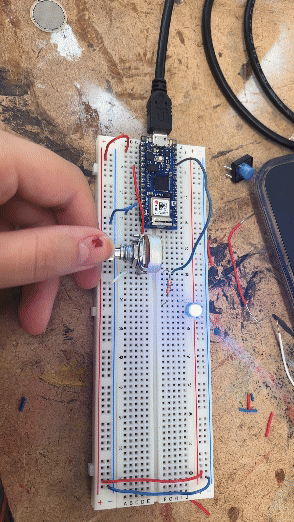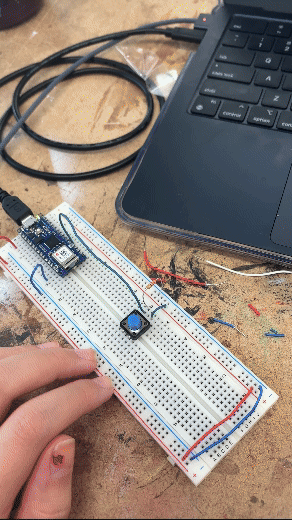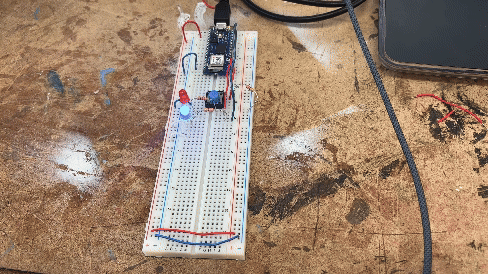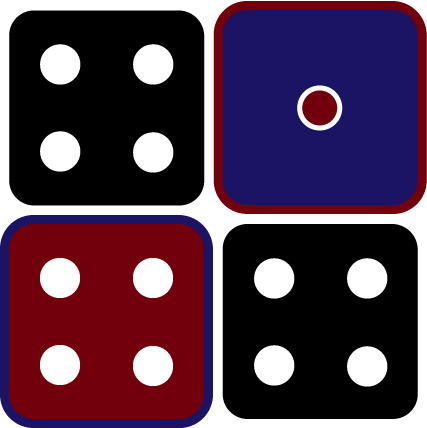Labs
I felt way more comfortable working on this week's labs, becuase I had a better understanding of circuits once we had class. Seeing an llustration of the relationship between voltage, resistance, and current really helped me understand those concepts more. I do really well having the diagrams in the labs, but I definitely worry that I wouldn't be able recreate a circuit without that help, so that's something I want to work on moving forward. I did have a couple mishaps; I miswired the potentiometer and it started smoking a little bit. I didn't realize that the outside prongs had to be the ones connected to power and ground, so that was my mistake there. I also stabbed myself with a wire at some point, so I was bleeding a bit. Funnily enough, I burned myself during week one, so I'm excited to see what injury I inflict upon myself next. Otherwise, I'm getting the hang of things through trial and error, I just need to work on replicating work without visual instructions.

Lab: Analog Input

Lab: Analog Input

Lab: Sensor Detection

Lab: Digital Input & Output
Readings
Tom Igoe, Physical Computing's Greatest Hits (and Misses)
This was a useful read for me, because I feel like I'm lacking in creativity for this course. I don't have a background in this, so learning the basics is my focus. However, that means what I'm making wouldn't necessarily be impressive. I mean, it's impressive to me to be able to do any of it at all, but when it comes time for the midterm... I want to do something that will at least be cool. It's reassuring to hear that an idea doesn't have to be completely revolutionary in order to be original. This reading also spelled out the different categories I could work with/in, and that has already given me some direction as to what things I find interesting. Lastly, I like the idea that robotics is complementary to but not exactly the same as physical computing. I had originally imagined physical computing to be a precursor to something like robotics, which doesn't really pay PCOMP what its due. I shouldn't see the dynamic as hierarchical, because that makes PCOMP not as advanced or difficult? That doesn't really seem right to me anyway. There is also an emphasis on interactivity as being an important aspect of physical computing, which isn't something I had considered. Definitely something for me to think about!
Don Norman, Design of Everyday Things & Emotional Design: Attractive Things Work Better
I liked this reading a lot, but I didn't have time to compile thoughts! Maybe I'll come back later...
